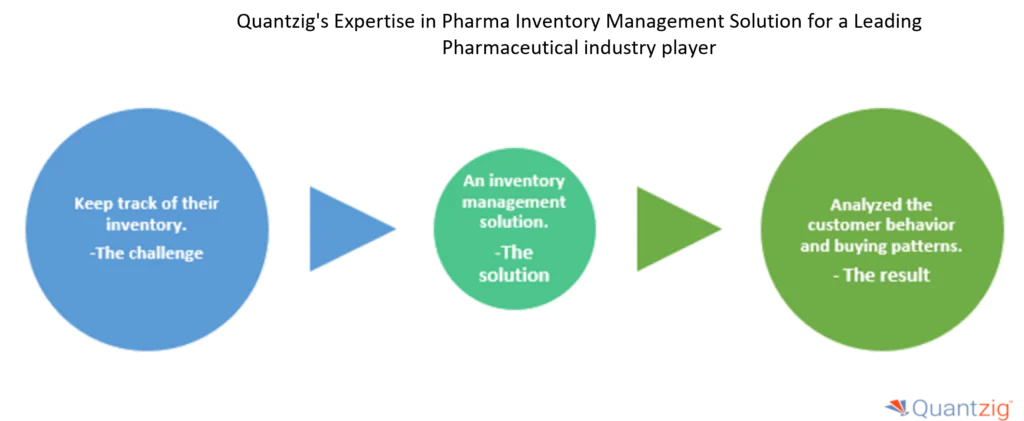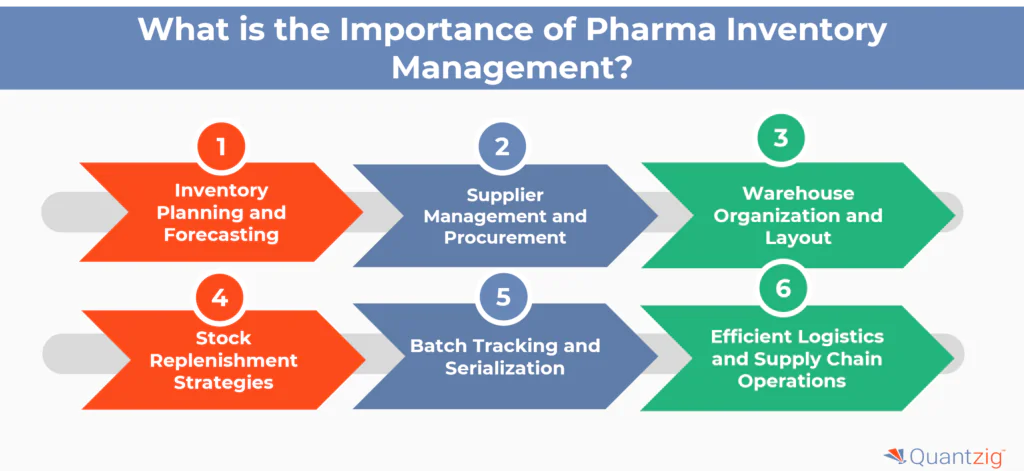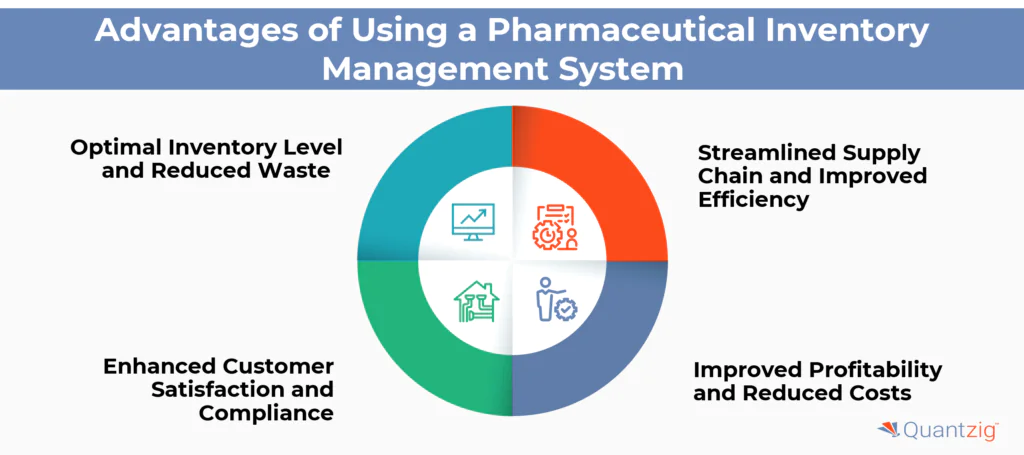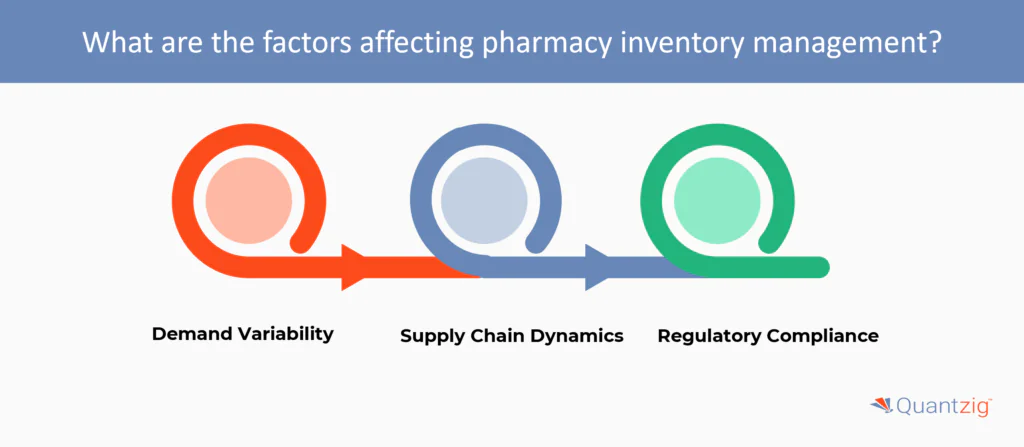Author: Associate Vice President, Analytics and Data Strategy, Quantzig.
Table of Contents
Introduction to Pharma Inventory Management
In the pharmaceutical industry, effective inventory management is paramount to ensuring seamless operations, minimizing costs, and meeting stringent regulatory requirements. With ever-evolving market dynamics and the need for precision in supply chain operations, organizations face the challenge of optimizing inventory levels while ensuring product availability.
Quantzig’s Pharma Inventory Management Dashboard offers a comprehensive solution to address these challenges. By leveraging advanced analytics and data visualization, our dashboard provides real-time insights into inventory levels, demand forecasts, and supply chain performance. Through customizable dashboards and interactive visualizations, pharmaceutical companies can gain actionable insights to streamline inventory management processes, reduce stockouts, and optimize inventory turnover.
Request a demo to experience the meaningful insights we derive from data through our analytical tools and platform capabilities. Schedule a demo today!
Request a Free Demo
Quantzig’s Expertise in Pharma Inventory Management Solution for a Leading Pharmaceutical industry player
| Category | Details |
|---|---|
| Client Details | Pharmaceutical industry player |
| Challenges Faced by the Client | The client wanted to efficiently keep track of their inventory and balance the risks associated with inventory gluts and shortages. |
| Solutions Offered by Quantzig | Our inventory management solution helped the client analyze the customer behavior and gain insights into the buying patterns, seasonal demand, and location-based factors. The solution also offered an accurate picture of the requirements of the customers and kept quantities of products on hand to avoid out-of-stock issues. |
| Impact Delivered | Minimize the cost of inventory while maximizing supply chain efficiency in a timely manner. |

Client Details
A leading pharmaceutical industry player with a diverse product portfolio.
Challenges Faced by the Client
A renowned client in the pharmaceutical industry with companies spread globally wanted to efficiently keep track of their inventory and balance the risks associated with inventory gluts and shortages. The client also wanted to keep the right amount stock level to fulfill the customers’ demand and operate profitably. Moreover, with the help of an inventory management solution, the pharmaceutical industry firm wanted to reorder their supplies to meet the minimum levels and provide a measure of control over the inventory management process. The primary concern of the client was to leverage the use of relevant technologies to gain better visibility into the supply chain system.
Pharma Inventory Management Solutions Offered by Quantzig
The inventory management solution offered by Quantzig helped the client analyze the customer behavior and gain insights into the buying patterns, seasonal demand, and location-based factors. Moreover, the solution also offered an accurate picture of the requirements of the customers and kept quantities of products on hand to avoid out-of-stock issues. The solution also assisted the client to segment the products based on customer demands ranging from high-value, moderate-value, and low-value. With the help of our solution, the pharmaceutical industry client was able to minimize the cost of inventory while maximizing supply chain efficiency in a timely manner.
Impact Analysis of Pharma Inventory Management Solution
The solution provided by Quantzig significantly improved the client’s relationship and collaboration with suppliers by offering real-time visibility into current stock, stock on hold, and future demand projections. This enhanced visibility allowed the client to analyze trends in sales and supply chains, leading to more informed decision-making. By leveraging historical inventory data and implementing cost-minimizing strategies, the client was able to achieve economies of scale and better determine demand for their products. The engagement also addressed issues stemming from poor pharmacy inventory management system by introducing a perpetual inventory management method complemented by a hybrid approach tailored to the type of product and size of inventory. This comprehensive approach not only minimized inventory shrinkage but also optimized the pharmacy inventory management system, resulting in improved efficiency and cost savings for the client.
Experience the advantages firsthand by testing a customized complimentary pilot designed to address your specific requirements. Pilot studies are non-committal in nature.
Request a Free PilotPharmaceutical Industry Overview
The pharmaceutical industry develops, produces, and markets medications to meet rising customer needs. It saw a growth of one trillion USD in 2014, driven by an aging population and lifestyle changes. Key factors influencing its future include:
- Policy reforms: Healthcare policy changes directly impact the industry, with companies needing to comply with FDA regulations.
- Customer expectations: Demand for cost-effective, high-quality therapies pushes companies to deliver better solutions.
- Biosimilars: Though cost-effective, some resist biosimilars over concerns about stifling innovation.
Inventory management solutions in the pharmaceutical industry are crucial for tracking, restocking, and ensuring the availability of medications, improving patient care.
What are the inventory requirements in medicine?
Inventory requirements in medicine encompass a range of factors and considerations to ensure the benefits and effective management of pharmaceutical products. Key aspects of inventory requirements in medicine, along with relevant keywords, are as follows:

| Inventory Management Practice | Description |
|---|---|
| Utilizing Specialized Inventory Systems | Leveraging pharma inventory management tracking systems like SOS Inventory enables real-time stock visibility, batch tracking, and expiration alerts, improving patient safety. |
| Adhering to Industry Standards | Compliance with GMP and FDA guidelines ensures the safety and efficacy of medications, critical for pharmaceutical supply chain management and risk mitigation. |
| Conducting Regular Physical Counts | Regular audits verify stock levels, minimize errors, and prevent stockouts, aligning with pharma inventory optimization strategies for better turnover rates. |
| Monitoring Expiration Dates | Tracking expiration dates helps avoid the risks of dispensing expired drugs. Automated inventory solutions for healthcare facilities streamline this process to safeguard patients. |
| Tailoring Inventory for Hospital Pharmacies | Customized approaches, such as Just-In-Time (JIT) inventory management, ensure timely access to high-demand medications, optimizing pharma stock control. |
This approach incorporates pharmaceutical stock monitoring and pharmacy inventory control best practices, enhancing overall inventory efficiency in healthcare settings.
What is inventory management in pharma?
Pharma inventory management is the process of overseeing and controlling the stock of pharmaceutical products within a healthcare organization or pharmacy. Efficient inventory management helps prevent shortages or excess stock, ensuring timely availability of essential medications.
Advanced inventory management systems utilize technologies like barcoding and RFID to track and manage pharmaceutical inventory more accurately. An effective pharmaceutical inventory management system includes tasks such as monitoring expiration dates, replenishment ordering, and minimizing wastage. The goal of this technique is to optimize stock levels, reduce costs, and improve patient care by ensuring the availability of necessary medications when needed.
Importance of Pharma Inventory Management

Pharmaceutical inventory management ensures seamless medication flow within the healthcare supply chain, playing a critical role in operational efficiency and patient care. Key aspects include:
- Inventory Planning and Forecasting:
Accurate demand forecasting, based on historical data and trends, helps maintain optimal stock levels, reducing excess inventory and costs while ensuring an uninterrupted medication supply. - Supplier Management and Procurement:
Strong supplier relationships and efficient procurement processes ensure timely access to quality medications, minimizing supply chain disruptions and maintaining stock levels. - Warehouse Organization:
Optimizing warehouse layouts improves storage, retrieval, and distribution, enhancing operational efficiency, reducing costs, and ensuring accurate stock management. - Stock Replenishment:
Automated replenishment systems based on reorder points and demand forecasts prevent stockouts and overstocking, improving customer satisfaction and operational efficiency. - Batch Tracking and Serialization:
Unique batch identifiers and tracking systems ensure product traceability, quality control, and regulatory compliance, supporting product recalls and enhancing patient safety. - Efficient Logistics:
Advanced technologies like barcode scanning optimize logistics, minimize errors, and ensure continuous medication supply, upholding safety standards and compliance.
Get started with your complimentary trial today and delve into our platform without any obligations. Explore our wide range of customized, consumption driven analytical solutions services built across the analytical maturity levels.
Start your Free Trial TodayAdvantages of Using a Pharmaceutical Inventory Management System
In the pharmaceutical industry, managing inventory effectively is crucial for maintaining optimal stock levels, reducing waste, and ensuring timely delivery of products to customers. Pharmaceutical inventory management systems (PIMS) have become essential tools in achieving these goals. By leveraging advanced technology and automation, PIMS streamlines warehouse processes, optimizes inventory levels, and enhances supply chain management. This article highlights the key advantages of using a PIMS in the pharmaceutical industry.

| Key Benefit | Description |
|---|---|
| Optimal Inventory Levels & Reduced Waste | Real-time tracking and automated alerts help maintain optimal stock levels, reduce waste, prevent overstocking/stockouts, and lower storage costs. |
| Streamlined Supply Chain & Efficiency | Integration with supply chain systems automates inventory adjustments, ensures accurate stock monitoring, and improves operational efficiency through cloud access. |
| Enhanced Customer Satisfaction & Compliance | Accurate tracking of inventory, expiration dates, and lot numbers ensures regulatory compliance, timely removal of expired products, and improved customer trust. |
| Improved Profitability & Reduced Costs | Automation reduces labor costs, optimizes inventory levels, and provides detailed analytics for better decision-making, improving profitability and competitiveness. |
A pharmaceutical inventory management system boosts operational efficiency, customer satisfaction, and profitability by leveraging technology and automation.
Pharmacy inventory management: The Way Beyond
Efficient pharmacy inventory management is crucial for ensuring seamless operations, shelves, labeling and optimal patient care in the healthcare industry. However, navigating the complexities of inventory control in pharmacies requires a nuanced understanding of various factors that can impact inventory levels, distribution, and overall efficiency. By identifying and addressing these factors, pharmacies can streamline their inventory managing processes, enhance patient satisfaction, and optimize operational performance.

Demand variability in the pharmaceutical sector, influenced by factors such as seasonal illnesses and public health events, requires constant adjustments in pharma inventory management to maintain optimal stock levels. Additionally, the complexity of the pharma supply chain—impacted by supplier reliability, lead times, and transportation disruptions—affects medication availability and costs, making efficient pharmaceutical inventory control essential.
Pharmacies must also navigate strict regulations governing the storage and dispensing of medications, which requires robust pharma stock management systems to track expiration dates, manage controlled substances, and ensure compliance. Implementing advanced inventory management for pharmaceuticals, such as real-time tracking and cloud-based solutions, helps optimize pharma supply chain processes and enhance regulatory adherence.
Conclusion
In conclusion, effective pharmaceutical inventory management is indispensable for ensuring the uninterrupted supply of medications, maintaining product quality, and upholding patient safety standards within the healthcare industry. By in-depth planning inventory levels, optimizing warehouse layouts, and implementing robust stock replenishment strategies, pharmaceutical companies can enhance operational efficiency, reduce costs, and mitigate supply chain risks.
Moreover, adherence to regulatory requirements, batch tracking, and serialization practices instills trust in pharmaceutical products and safeguards patient health. As technology continues to evolve, embracing innovative inventory management solutions becomes increasingly crucial for staying competitive in the dynamic pharmaceutical landscape. By prioritizing efficient practices, pharmaceutical companies can achieve greater agility, resilience, and sustainability, ultimately driving sales, positive outcomes for both the organization and the patients it serves.


